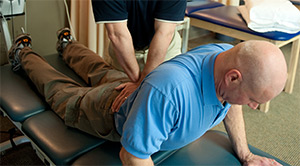
Learn about nonsurgical options to get you back to your everyday activities.
An artificial disc replacement is intended to replicate the rotation of a normal, healthy disc and retain the motion in the spine, which lessens the risk to other disc levels.
Spinal fusion is the historical standard surgical procedure used with the repair of herniated or degenerative discs. Because the damaged disc needs to be removed, a piece of bone that acts as a spacer must be inserted to retain the space between the vertebrae.
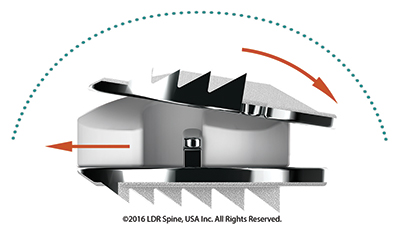 While spine surgeons have been cautious about the artificial disc, the newest artificial discs are much improved. The other issue of concern is that, unlike the lumbar area where there are more vertebrae to provide rotation, the neck only has seven vertebrae. If two herniated disc levels in the neck need to be fused and locked together in traditional neck fusion surgery, that greatly increases the likelihood of “adjacent segment disease” where discs at the other levels are damaged because of the additional stress caused by a spinal fusion.
While spine surgeons have been cautious about the artificial disc, the newest artificial discs are much improved. The other issue of concern is that, unlike the lumbar area where there are more vertebrae to provide rotation, the neck only has seven vertebrae. If two herniated disc levels in the neck need to be fused and locked together in traditional neck fusion surgery, that greatly increases the likelihood of “adjacent segment disease” where discs at the other levels are damaged because of the additional stress caused by a spinal fusion.
Consequently, the most advanced spine centers are now using artificial discs in the neck to prevent damage to the other disc levels in the cervical spine and lower the risk of adjacent segment disease.
The two most prominent discs approved by the FDA for two levels in the neck are the “Prestige artificial disc” and the “Mobi-C artificial disc.”
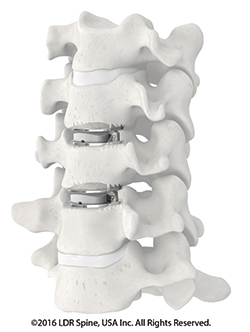 Mobi-C® is different from other cervical discs because of its bone sparing technique, which eliminates the need for bone chiseling. Typically when performing artificial disc surgery, the spine surgeon with other implants has to chisel out bone from the vertebrae to make room for the new implant. But with the new Mobi-C® device, there is less chiseling needed, which significantly reduces the amount of bone that is affected. Consequently, the spine surgeon is able to preserve more of the vertebrae.
Mobi-C® is different from other cervical discs because of its bone sparing technique, which eliminates the need for bone chiseling. Typically when performing artificial disc surgery, the spine surgeon with other implants has to chisel out bone from the vertebrae to make room for the new implant. But with the new Mobi-C® device, there is less chiseling needed, which significantly reduces the amount of bone that is affected. Consequently, the spine surgeon is able to preserve more of the vertebrae.
The second benefit of the Mobi-C® disc is that it has been approved by the FDA for one and two levels in the neck. This is a significant benefit since many patients who suffer from degenerative disc disease can have disc problems at multiple levels in the neck.
Dr. John Stokes at Texas Spine and Scoliosis is one of few spine surgeons in Central Texas trained to implant the Mobi-C artificial disc.
Dr. Stokes was one of the key physicians involved in the clinical trials of the Mobi-C disc during the FDA approval process and has authored multiple publications and research papers related the clinical outcomes of the Mobi-C artificial disc.
To see if a person is a candidate for artificial disc replacement, they can contact the office of Dr. Stokes at Texas Spine & Scoliosis at 512-324-3580 for an appointment.
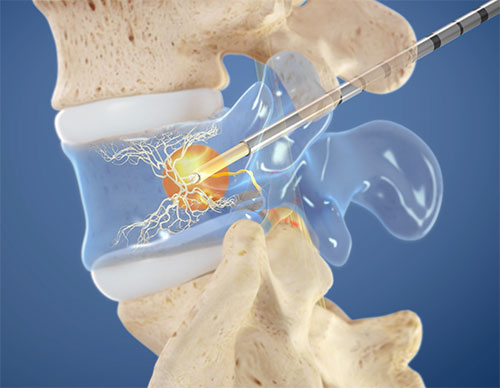
Learn about surgical and nonsurgical treatment options.

Learn about nonsurgical options to get you back to your everyday activities.
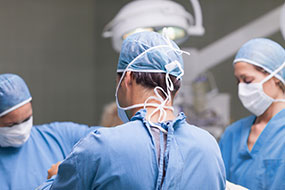
Learn about various surgical procedures performed by Ascension Texas Spine & Scoliosis.
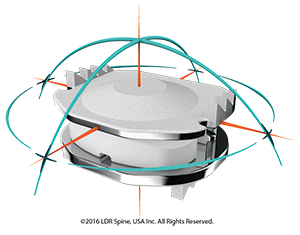
The artificial disc concept is intended to be an alternative for spinal fusion surgery.